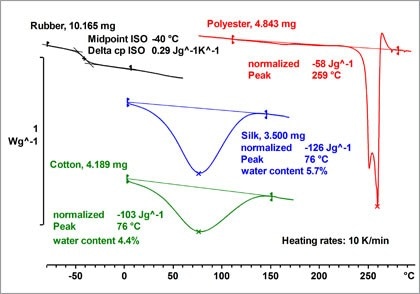
The textile industry in is one of the most rapidly developing areas today. Continuous development in the methods used for textile characterization serve to address growing consumer expectations such as for:
- Waterproof yet breathable outdoor gear
- Colors that don't fade
- Resistance to wear and tear, and
- Textiles that don't shrink after washing
Textile Characterization by Thermal Analysis
Thermal analysis (TA) can be applied to various textiles to investigate their shrinkage or expansion behavior, moisture content, usable temperature range, thermal stability, the effect of UV, and fiber strength.
This webinar provides coverage on the main thermal analysis techniques used for the assessment of fibers, filaments, threads, fabrics or final textile products.
Techniques Covered in the Webinar
DSC – used to investigate glass transition, melting behavior, reaction enthalpies, and the influence of fillers.
TGA – the main applications of TGA are composition analysis, thermal stability and evaporation behavior.
TMA – is used to study the expansion or shrinkage of materials.
DMA – the best method for characterizing the viscoelastic behavior of materials.